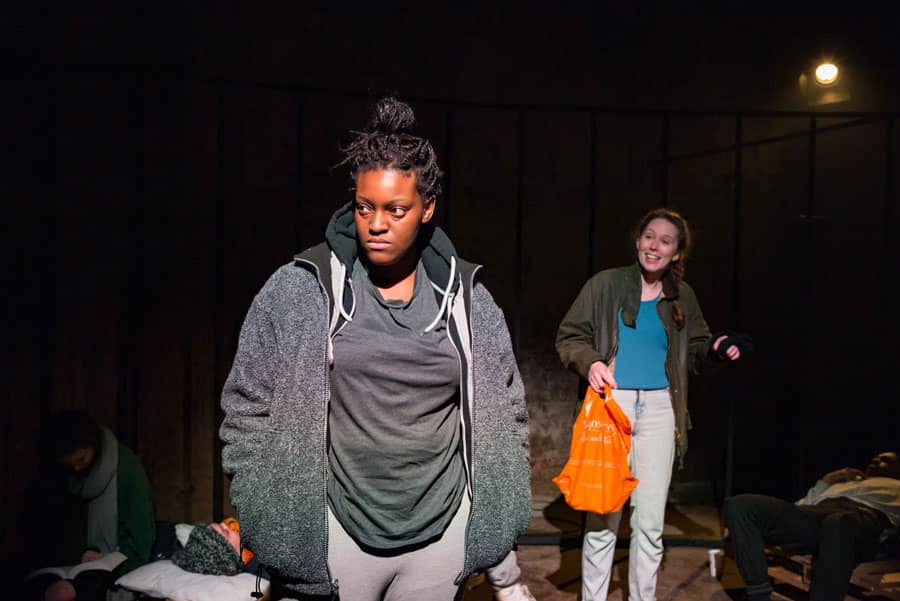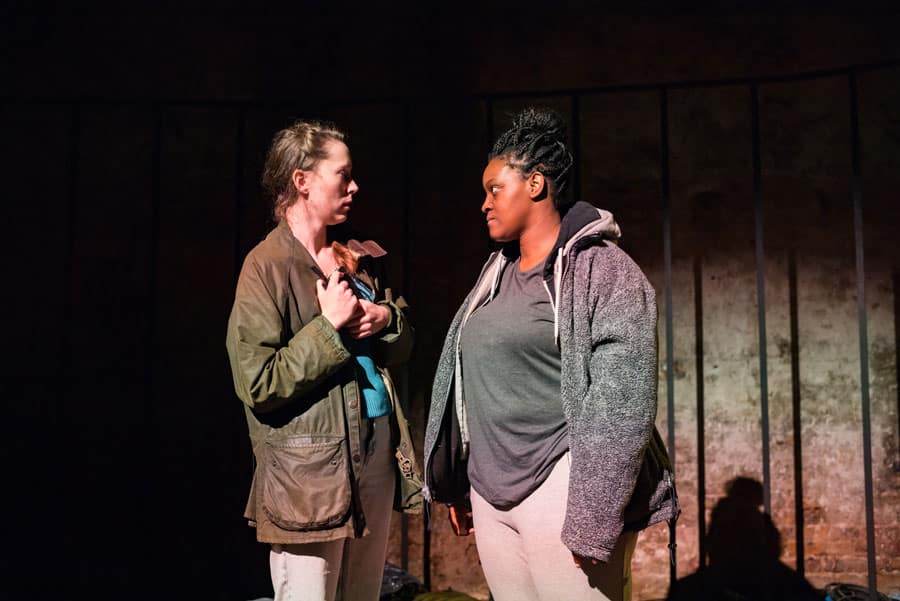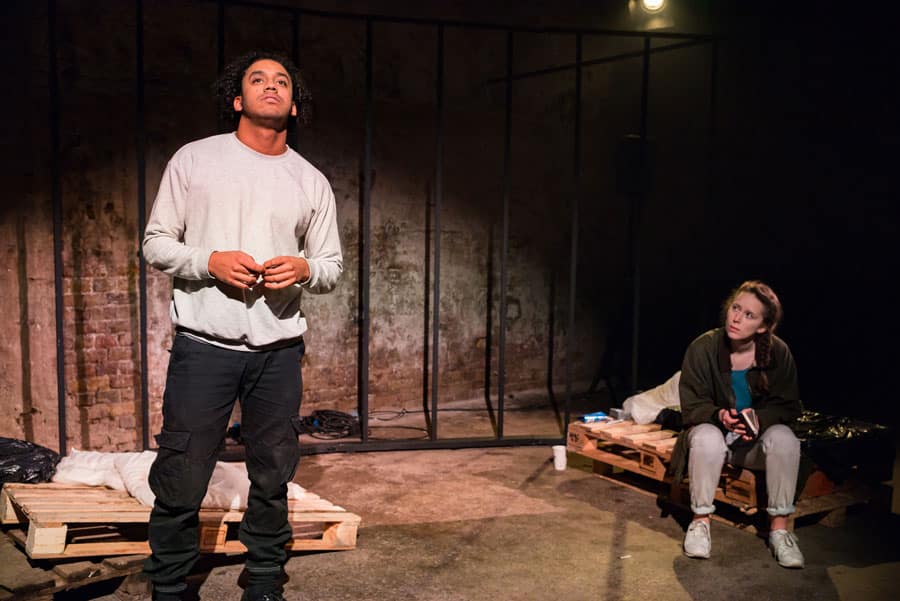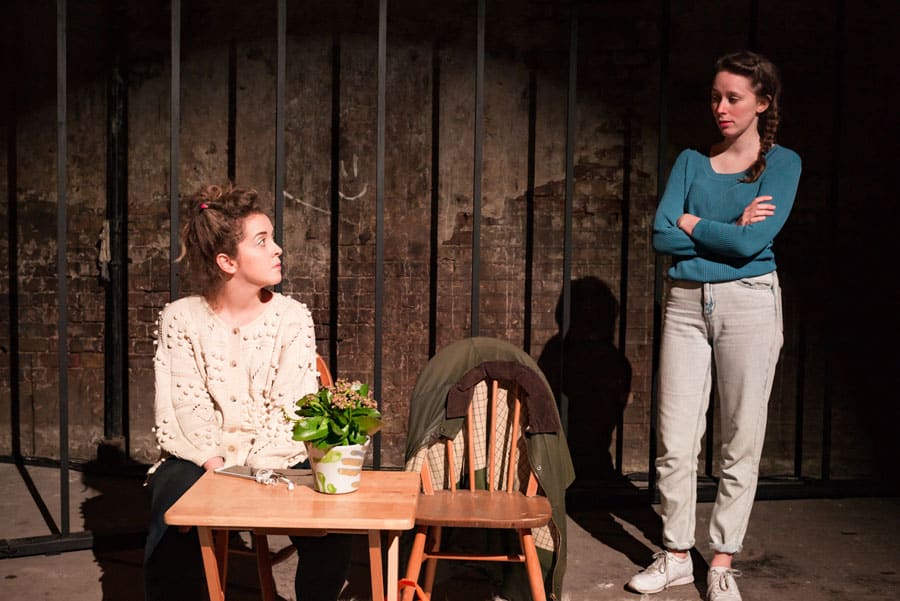
The Litterati
The Vaults
26 January 2017
As I queue to enter the Cavern theatre in ‘The Vaults’, a gorgeously grungy multi-room venue nestled in the bowels of Waterloo’s graffiti soaked Leake Street, I am struck by the awesome potential of fringe theatre. Everyone is having such a good time; couples and groups are bouncing happily through the festival, between comedy, cabaret and plays of extraordinary diversity. It is inclusive and immersive, and events like this truly make me feel lucky to live in London.
The Litterati uses this space to great effect, depicting the underground home of the titular group in all its unromantic desolation, bedecked with broken beds and rotten mattresses.
The play centres on Millie (Eleanor Crosswell), an enthusiastic and naive wannabe journalist, thrilled at the prospect of documenting the ‘Litterati’ and publishing her story with VICE. A fading sub-culture, once dedicated to the arts of philosophising and rioting, they meet her with hostility and suspicion. With the aid of Twix (Andy Umerah), the group’s most amiable member, Millie is allowed access to their world, and discovers that the life of a societal outcast is not as attractive as it appears.
Much like the Greek sculptor of Pulp’s ‘Common People’, Millie is drawn to the idea of being an outsider, but cannot understand how it feels to live your life with no meaning or control. This is expertly dissected by the group, and not least by terrifying leader Dux (the excellent Sarel Rose), who continuously reminds Millie that she is not at a “holiday camp”, and delivers a phenomenal monologue about making “space” for yourself in an uncaring world.

Glimpses of Millie’s home life with long-term girlfriend Hattie (Gabrielle Nellis-Pain), coupled with revelations of her affluence and sheltered upbringing speaks of support and security that the Literati lacks. Yet thanks to Crosswell’s engaging performance, we understand why the group is so attractive for Millie. She conveys desperation and loneliness behind her cheerful exterior; a millennial railing against an uncertain global and personal future.
In this respect, the play offers valuable perspective, contextualising her difficulties by documenting her subjects’ unsavoury stories. From Twix’s graphic description of the events that led to the group’s exile, to Reeda’s (Roseanna Brear) harrowing examination of life on the street, the play compels us to reflect on how we are empowered by ourselves and others, for better or worse.

Yet in spite of its strong cast and perceptive dialogue, the play feels a little incomplete. With just an hour’s running time and a host of complex themes, it is over-reliant on telling, rather than showing the audience key developments. Problematically, the group’s anarchic, philosophical and literary ambitions are largely restricted to anecdotes for Millie’s article, and their bonds of friendship are consequently weakened in the eyes of the audience. Whilst it raises interesting questions about the Literati only being legitimised by story-telling, it also lends an oddly solipsistic air to proceedings, as if they do not exist when Millie isn’t around.

Furthermore, Millie’s relationship with Hattie is, in spite of moving exchanges between Crosswell and Nellis-Pain, played at such a pace that it occasionally descends into melodrama. Notably, a petty argument over a copy of Foucault, lent by one of the Literati, speaks of deeper troubles than anything intimated by earlier scenes. The romantic woes that follow are tethered to an unconvincing love triangle, which, in turn, becomes pivotal to an otherwise perceptive conclusion.
The Litterati is an intriguing deconstruction of life on the margins of society, seen through the eyes of its sheltered protagonist. The play occasionally suffers from melodrama, and explaining, rather than demonstrating key elements of the narrative. Nevertheless, this is compensated by otherwise perceptive dialogue and strong performances. It is certainly worth a watch.
Photos: Nick Rutter
